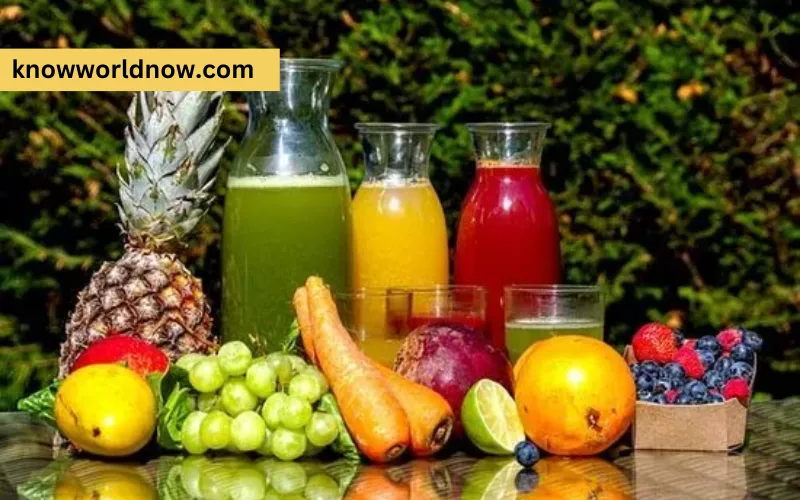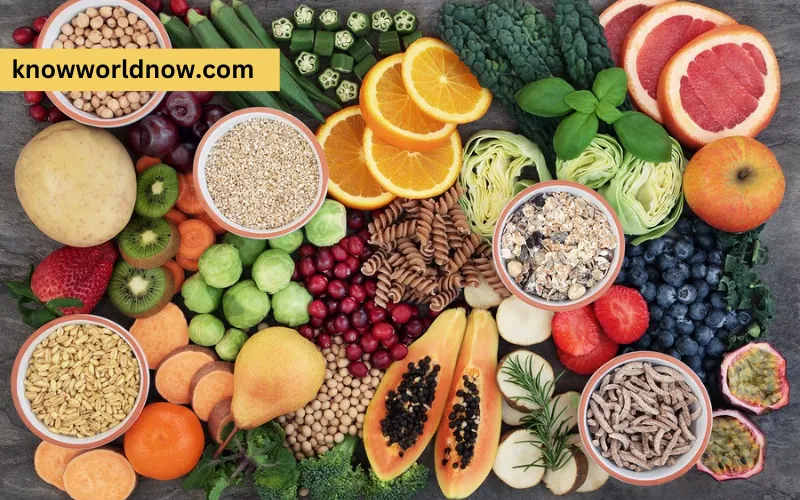Wanna live a healthy life with a Seventh-Day Adventist diet? We will dive into that today!!!!
Health and nutrition are important aspects of life that shouldn’t be overlooked. Eating a balanced diet is essential for maintaining good health, but it can be difficult to find the right balance.
One of the diets that have been gaining in popularity recently is the Seventh-Day Adventist diet. This diet is based on the dietary advice provided by the Seventh-Day Adventist Church and includes a wide variety of mostly plant-based foods.
In this blog post, we’ll take a look at what the Seventh-Day Adventist diet is, the benefits of following it, and why it might be a good option for those wanting to try something new.
You May Also Read: A Vegan Lifestyle Goes Beyond Diet What Is the Seventh-day Adventist Diet? How Can I Find A Perfect Morning Diet?
Adventists follow these fundamentals:
It is believed that the Seventh-day Adventists believe God tells them to be concerned about their health. They don’t follow any strict diet regimen, but they do believe in these fundamentals:
- The secret to leading a healthy lifestyle is balance and moderation.
- Even something seemingly beneficial could potentially harm your health.
- Fresh air, pure water, and sunshine are all healthy.
- Exercise helps clear your mind.
- Avoid smoking, drinking, and other substances that alter your mind.
- A well-balanced vegetarian diet promotes health.
- Legumes, whole grains, fruits, nuts, and other vegetables, as well as an excellent supply of Vitamin B12, help to maintain the health of your family.
- It is not recommended to eat any unclean food items that are listed in the Bible.
Adhering to a Seventh-Day Adventist Diet
Adhering to a Seventh-Day Adventist.com diet is a lifestyle choice that comes with many health benefits and a commitment to eliminating unhealthy food choices.
Whether you’re looking to achieve better overall health, lose weight, or just learn more about healthy eating, the Seventh-Day Adventist diet can be a great way to get started.
Understanding the Basics
The Seventh-Day Adventist diet is based on the belief that God gave humans the natural foods and herbs that are best for their health.
This diet is largely vegetarian and includes a variety of whole grains and legumes, fruits, nuts and seeds, and vegetables, as well as some dairy and eggs.
It also eliminates processed foods such as white sugar, white flour, and other refined carbohydrates and fats.
Seventh-day Adventists Eat “Clean” Meats
The diet of the Seventh-day Adventist was designed through the Adventist Seventh-Day Church. It is generally an organic diet that prohibits eating a lot of animal products and also drinks, food, and other substances that are considered “unclean” in the Bible.
Seventh-day Adventists who consume meat differentiate between the “clean” and “unclean” kinds, as described in the Bible Book of Leviticus.
Pork, as well as rabbits and shellfish, are thought to be “unclean” and forbidden by Adventists. They tend to favor eating “clean” meats such as chicken, fish, and red meat that isn’t pork, along with animal products like eggs and dairy products that have low levels of fat content.
“Pure” meat is often confused with that which is kosher. Jewish diet guidelines require that kosher meat must go through strict killing and preparation procedures before it becomes “fit for human consumption.”
Shopping and Meal Planning
When shopping and meal planning for a Seventh-Day Adventist diet, one should focus on purchasing whole and natural foods whenever possible.
This means avoiding pre-packaged and processed foods, as well as those containing artificial colors, flavorings, and preservatives. It’s also important to buy organic produce when available.
Meal planning should include incorporating a variety of fruits, vegetables, whole grains, legumes, nuts and seeds, and dairy and eggs.
When making meals, focus on simple ingredients and recipes that are easy to prepare, and try to make meals in batches for easy storage and reheating.
Benefits of the Seventh-Day Adventist Diet

Scientists believe the Seventh-day Adventist diet offers many health advantages when following a plant-based regimen.
#1-Might reduce the risk of developing disease and improve overall health
Seventh-day Adventists have also been the subjects of numerous health studies. One of the most well-known research studies is called Adventist Health Study-2 (AHS-2), which involved more than 96,000 Adventists and examined the connections between diet, disease, and the way of life.
AHS-2 found that those who followed an all-vegetarian diet were significantly less at risk of obesity, high blood pressure, and blood sugar levels – all major risk factors for heart disease and premature mortality.
Adventists who consume a vegetarian diet were found to have lower rates of colon cancer compared to non-vegetarians.
#2-Could support a healthy diet and weight maintenance.
Research suggests that diets composed primarily of plant-based food with minimal animal products can help healthy people to keep their weight under control, more so than diets that contain more animal products.
Studies involving over 60 000 adults who participated in AHS-2 revealed that those on vegetarian diets were among those with the lowest body mass indexes compared with meat eaters and other vegetarians, whose BMIs were greater.
A review of 12 studies with 1,151 individuals observed that those following a vegetarian diet lost significantly more weight than individuals following non vegan eating plans.
#3-Could increase the duration of life
Blue zones are communities around the world where residents have been noted as living longer than average – in particular, those aged over 100 living there.
Longevity in the blue zone has been linked with lifestyle factors like staying active, getting enough restful sleep, and eating a diet abundant with plant-based foods.
An analysis of the Blue Zone discovered that 95% of those who lived to 100 consumed a diet consisting of plant-based food with an emphasis on whole grains and legumes.
Studies indicate that eating more plants could help to prevent early deaths by decreasing risks associated with heart disease, diabetes, obesity, and certain forms of cancer.
Potential Disadvantages of Seventh Day Adventists Diet
Although following a Seventh-day Adventist diet can provide numerous health advantages, it’s essential that each food item meets your dietary requirements.
People who follow a plant-based diet and avoid animal products are at greater risk of having deficiencies in nutrient levels like vitamin D, B12, omega-3 fats, iron, zinc, iodine, and calcium.
Adventist Church members understand the importance of eating a variety of nutrient-rich foods that include plenty of Vitamin B12. Good sources include B12-fortified non-dairy cereals, milk, nutritional yeast as well as B12 supplements.
If you’re on an all-plant diet, you might want to take an individual mineral and vitamin supplementation to satisfy your nutritional requirements.
The Seventh Day Adventist Diet Food Beliefs

The Main Food Sources
Fruits, vegetables, and whole grains form the foundation of nutrition. Even though the SDA religion is an all-vegetarian diet, it is possible to eat meat consumed if a person decides to. However, meats are classified as either ‘clean’ or ‘unclean. Clean meats are thought of as similar to Kosher meat. Pork and shellfish are not allowed.
Products From Animals
Dairy products such as milk or eggs are allowed within the Seventh Day Adventist diet. But excessive consumption should be limited to control cholesterol levels and keep them at an appropriate level. It is advised to replace dairy products with low-fat alternatives like almonds, rice, and milk to achieve this aim.
Foods That Are Limited
Beans and legumes are a good option to eat but only in moderation. Cholesterol-rich foods, which include sugars and salts, again should be consumed in moderation.
On an average day, those following this diet should aim to consume at least nine portions of vegetables or fruit per day and six servings of cereals, legumes, and whole grain products such as cereals. It is essential to consume sufficient nutrients such as vitamin B12 as well as calcium, iron, and protein zinc.
Foods to Include on a Seventh-Day Adventist Diet

The Seventh-day Adventist diet focuses on eating a variety of nutritious, unprocessed foods. Fruits and vegetables, whole grains, legumes, nuts and seeds, and healthy fats are all encouraged. Here’s a closer look at each of these food groups and some examples of foods you can include in your diet:
Fruits and Vegetables: Fruits and vegetables are the foundation of a healthy diet, and they should make up the majority of your food intake. Any variety of fresh, frozen, canned, or dried fruits and vegetables can be included in your diet.
Whole Grains: Whole grains are an excellent source of fiber, vitamins, minerals, and other important nutrients. Whole grain breads, cereals, pastas, and rice are all healthy choices.
Legumes: Legumes are a good source of vegetarian protein and are also high in fiber. Examples include beans, peas, lentils, and peanuts.
Nuts and Seeds: Nuts and seeds provide healthy fats, protein, and other essential nutrients. They can be eaten as a snack or used as ingredients in salads, soups, and other dishes.
Healthy Fats: Healthy fats are an important part of a balanced diet. Plant-based sources of healthy fats include avocados, olive oil, nuts, and seeds.
The Types of Food Seventh Day Adventists Diet Rely On
1. Avocados
Avocados are not only low in sodium but are also full of potassium – making them an excellent food choice for people living with high blood pressure. Their potassium content is 30% higher than bananas!
2. Water
Drinking six glasses of water must be consumed daily for those who adhere to an eating plan that adheres to the Seventh Day Adventist food beliefs. Water not only hydrates the body, but it’s also great for flushing away everyday stressors such as pollution.
3. Soy Milk
An alternative that is healthy for dairy products is to use soymilk. It can be added to cereals or as an ingredient in herbal teas to whiten. Soymilk is not high in fat and is also high in protein.
4. Oatmeal
Oatmeal is an essential ingredient for breakfast for Seventh-Day Adventists. Oatmeal is a great source of balance of fats and carbohydrates. It also contains a significant quantity of B vitamins as well as iron.
Since it is high in fiber, it’s nutritious and fills you up. To add flavor, the oatmeal, dried fruits, and nuts are a good addition.
5. Beans
To get proteins, Seventh-Day Adventists turn to beans in addition to peas and lentils. Remembering there are different varieties and methods for preparing beans can be a daunting task. So keep this in mind as a consideration when planning bean meals.
6. Whole Wheat Bread
Bread made from 100% whole-wheat isn’t only nutritious and easy to prepare but also contains a variety of nutrients, which are essential in food and diet for the Seventh Day Adventist food beliefs and dietary practices.
Foods to Avoid on a Seventh-Day Adventist Diet

Seventh-day Adventist diet guidelines avoid the following:
- Caffeine
- Alcohol
- Hot condiments
- Hot spices
- Pork
A. Refined Grains: Refined grains, such as white rice, white flour, and white bread, are highly processed and stripped of their natural nutrients. These refined grains lack essential nutrients and are not part of a healthy diet.
B. Processed and Packaged Foods: Many processed and packaged foods are high in sodium, sugar, and saturated fat. These foods also lack essential nutrients and should be avoided when following a Seventh-Day Adventist Diet.
C. Alcohol: Alcohol should be avoided on a Seventh-Day Adventist Diet. Alcohol is high in calories and sugar and can be damaging to the body when consumed in large amounts.
D. Meat and Dairy Products: Meat and dairy products are high in saturated fat and cholesterol and should be avoided on a Seventh-Day Adventist Diet. These foods are also difficult to digest and can lead to digestive issues.
Three-day sample menu of Seventh-day Adventists Diet
Here’s a three-day sample meal plan, which includes the healthful foods that could be eaten as part of a Seventh-day Adventist diet. It contains “clean” animal products.
Day 1
- Breakfast: Oatmeal, blueberries, soy milk, and chopped almonds
- Lunch: Hummus and veggie sandwich, Grapes, lunch, and some salad as a side
- Dinner: Grilled salmon on brown rice, sauteed greens and mushrooms
Day 2
- Breakfast: Scrambled eggs with garlic, spinach, and tomatoes, served with a breakfast of whole-grain toast
- Lunch: Spaghetti served with Seitan “meatballs” and a mixed green salad
- Dinner: Black bean burger served with pico de gallo and a fresh assortment of fruit
- Snacks: Apple slices topped with peanut butter, cheese that is low in fat, and chips of kale
Day 3
- Breakfast: Avocado and toast made with tomato and banana topped with cashew butter
- Lunch: Cheese made using nutritional yeast, and an additional serving of roasted broccoli
- Dinner: Mediterranean salad made with cucumbers, lentils, olives, sun-dried tomatoes, tofu as well as spinach, and pine nuts
- Snacks: Pistachios and a stick of celery with peanut butter, raisins, and Edamame
The three-day meal plan is primarily plant-based and provides suggestions for healthy foods that can be incorporated into the Seventh-day Adventist diet.
You can modify the plan to suit your personal preference, including eggs, dairy that is low in fat as well as “clean” meats.
Additional Considerations for a Seventh-Day Adventist Diet
Herbal Teas
Herbal teas can be a great addition to any diet, and for SDA followers, it can be especially beneficial. Herbal teas such as chamomile, peppermint, and ginger can help fight off sickness, reduce stress, and provide a calming effect.
SDA followers may also want to consider adding in rooibos tea, which is caffeine-free and can promote better sleep.
Supplements
In addition to herbal teas, supplements can also be a great addition to an SDA diet. For example, omega-3 fatty acids, such as those found in fish oil, can help improve heart health, reduce inflammation, and even provide a natural energy boost.
Additionally, probiotics can help improve digestion, while antioxidants such as resveratrol can help reduce the risk of certain diseases.
Exercise
Physical activity is an important part of any diet, and SDA followers should strive to incorporate exercise into their daily routines.
This could include activities such as walking, running, biking, swimming, and yoga. It’s important to remember that the best exercise for you will depend on your specific needs, so it’s best to speak to your doctor about what type of exercise is best for you.
FAQs
What Is The Seventh-day Adventist Diet Plan?
Seventh-day Adventists usually live a healthy vegetarian and vegan diet. There isn’t much of a strict diet plan. There are many excellent programs to find out more about becoming Vegan or vegetarian.
In actual fact, I had a nutritionist create a detox program and weight loss program for my readers, which adheres to Adventist principles.
Is it ok to eat “Unclean” Foods in the Seventh-Day Adventist diet?
No, it is not allowed to eat unclean foods in the Seventh-day Adventist diet.
Some Adventists said that “God told us not to consume certain foods to ensure our wellbeing and health, which we now recognize are no longer safe for consumption.
Conclusion
In conclusion, the Seventh-Day Adventist Diet is a balanced and healthy diet that provides a wide variety of nutritious foods.
It has many benefits, including providing a range of vitamins, minerals, and other nutrients, and helping to reduce the risk of chronic diseases.
Additionally, it can also help to promote weight loss and maintain a healthy weight. However, there are also some challenges that come with following a Seventh-Day Adventist Diet, such as the need to pay close attention to portion sizes and avoiding processed foods.
Nonetheless, the Seventh-Day Adventist Diet is an excellent way to lead a healthy lifestyle.







